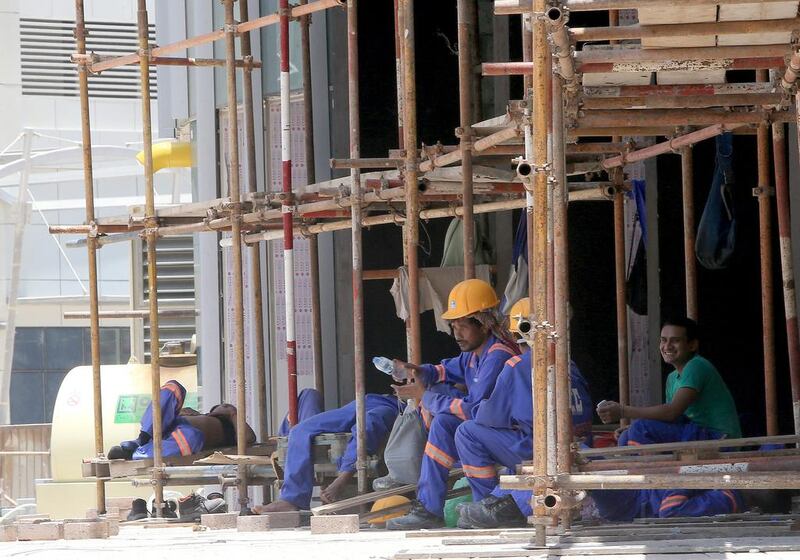Abu Dhabi’s economy grew at an estimated 2.2 per cent last year despite the collapse in oil prices as its diversification efforts paid off, according to a report from Statistics Centre Abu Dhabi.
The emirate, the world’s eighth-biggest producer of oil, said its GDP rose to Dh952.6 billion in 2014 from Dh931.7bn in 2013, when GDP rose 2.4 per cent.
The share of non-oil activities in GDP at constant prices increased to 49.5 per cent in 2014 from 38.7 per cent in 2004.
Away from oil, construction was the biggest contributor to growth. Construction had a 9.6 per cent share of non-oil GDP, while finance and insurance accounted for 7.2 per cent of the non-oil economy.
Crude oil, the lifeblood of many economies in the region, fell more than 50 per cent last year amid a drop in demand from emerging markets such as China, the world’s second-largest economy, and an increase in production in the US.
The UAE’s federal government relies on oil revenues to fund more than 60 per cent of its budget.
Despite that drop, the UAE economy is estimated to have grown more than 4 per cent last year.
As a result of the oil slump, many economists – including those at HSBC, Standard Chartered and the IMF – have lowered their growth forecasts for Arabian Gulf countries this year.
The IMF cut its estimate of the UAE’s GDP growth to 3.2 per cent.
In January, the ratings agency Moody’s estimated that Abu Dhabi’s economic growth rate would slow this year – to below 3 per cent.
Oil is more important than those percentages might indicate as it makes up about 80 per cent of the revenues of the Abu Dhabi government, which in turn shoulders a large share of the federal government’s financial burden.
Although its budget runs at a deficit below $80 per barrel of oil, the Abu Dhabi government maintains a high credit rating which Moody's says "reflects our expectation that resources accumulated during the recent period of high oil prices and a prudent budgeting of oil proceeds will mitigate the negative consequences of oil price volatility on the country's fiscal and external accounts". But a prolonged period of lower oil prices is a potential threat, the agency says.
mkassem@thenational.ae
Follow The National's Business section on Twitter





